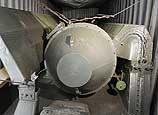
BEIJING, July 17 (Xinhua) -- Caloric restrictions have been shown to increase lifespans for mice by nurturing healthy gut microbiota, according to a new find by Chinese scientists.
A paper co-written by researchers at Shanghai Jiaotong University, the Shanghai Institute for Biological Sciences under the Chinese Academy of Sciences and the Chinese National Human Genome Center that was published in the journal Nature Communications on Tuesday illustrated the relationship between caloric intake and life span-related gut bacteria using experiments with mice.
Researchers found that rats who ate an intake- and calorie-restricted diet outlived those without intake restrictions by 20 percent, as well as outlived those eating a high-fat diet without restrictions by 50 percent, said Zhao Liping, a microbiologist at Shanghai Jiaotong University.
By documenting changes in their gut microbiota, researchers found that mice that followed caloric restrictions had a greater number of bacteria that correlate positively with life span, including the genus Lactobacillus.
Meanwhile, the abundance of "bad bacteria" often related to diseases was reduced by a low-fat diet, as evidenced by lower levels of a protein associated with inflammation in the mice.
"Traditional Chinese medicine (TCM) advocates eating until one is 70 percent full, which is correct from the perspective of modern science," Zhao said, adding that the study could provide a reference in conducting dietary anti-aging interventions among the public.
















 China’s weekly story
China’s weekly story
(2013.7.5-7.12)


![]()
